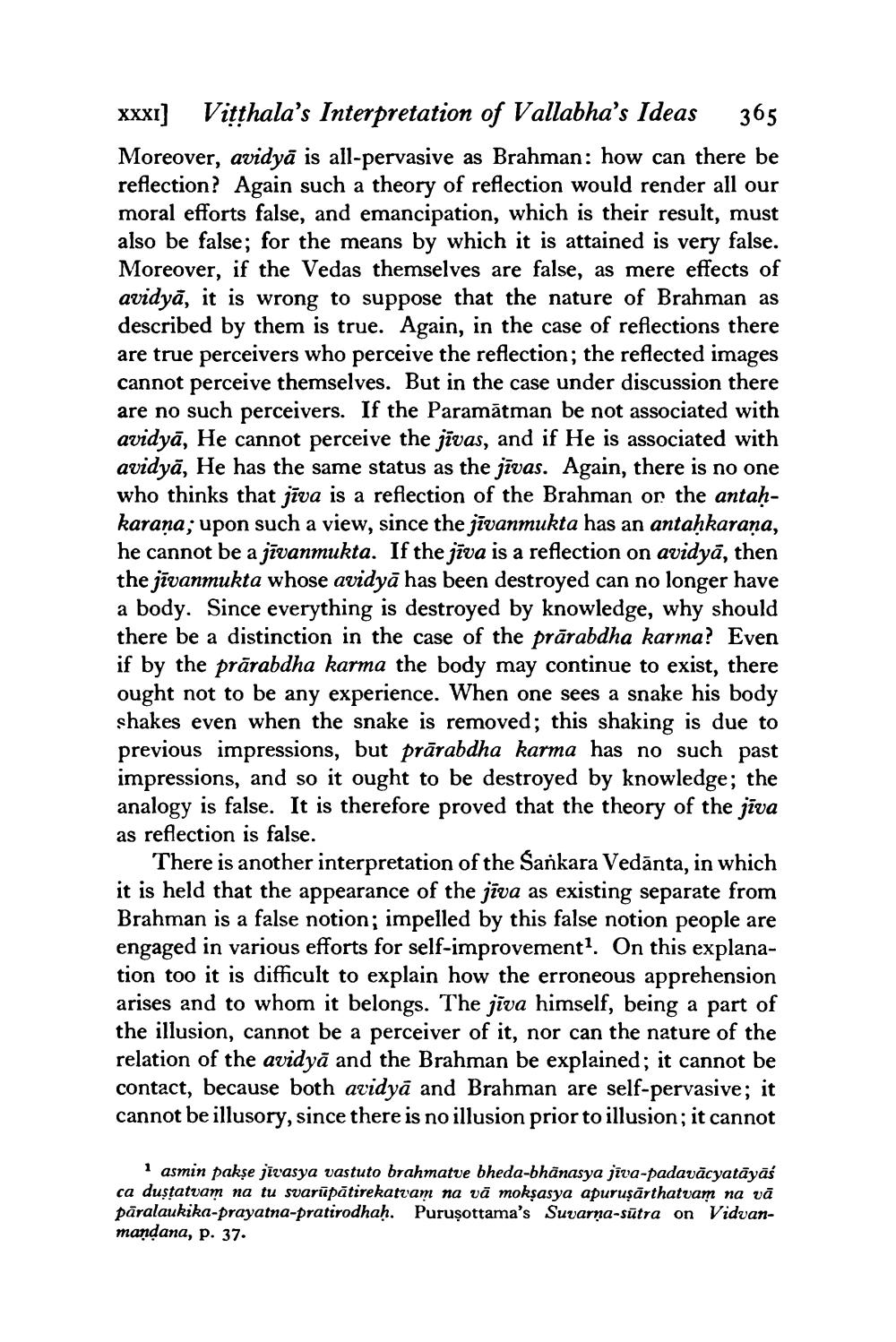________________
XXXI] Vitthala's Interpretation of Vallabha's Ideas 365 Moreover, avidyā is all-pervasive as Brahman: how can there be reflection? Again such a theory of reflection would render all our moral efforts false, and emancipation, which is their result, must also be false; for the means by which it is attained is very false. Moreover, if the Vedas themselves are false, as mere effects of avidyā, it is wrong to suppose that the nature of Brahman as described by them is true. Again, in the case of reflections there are true perceivers who perceive the reflection; the reflected images cannot perceive themselves. But in the case under discussion there are no such perceivers. If the Paramātman be not associated with avidyā, He cannot perceive the jīvas, and if He is associated with avidyā, He has the same status as the jīvas. Again, there is no one who thinks that jīva is a reflection of the Brahman or the antaḥkarana; upon such a view, since the jīvanmukta has an antaḥkarana, he cannot be a jīvanmukta. If the jīva is a reflection on avidyā, then the jīvanmukta whose avidyā has been destroyed can no longer have a body. Since everything is destroyed by knowledge, why should there be a distinction in the case of the prārabdha karma? Even if by the prārabdha karma the body may continue to exist, there ought not to be any experience. When one sees a snake his body shakes even when the snake is removed; this shaking is due to previous impressions, but prārabdha karma has no such past impressions, and so it ought to be destroyed by knowledge; the analogy is false. It is therefore proved that the theory of the jīva as reflection is false.
There is another interpretation of the Sankara Vedānta, in which it is held that the appearance of the jīva as existing separate from Brahman is a false notion; impelled by this false notion people are engaged in various efforts for self-improvement? On this explanation too it is difficult to explain how the erroneous apprehension arises and to whom it belongs. The jīva himself, being a part of the illusion, cannot be a perceiver of it, nor can the nature of the relation of the avidyā and the Brahman be explained; it cannot be contact, because both avidyā and Brahman are self-pervasive; it cannot be illusory, since there is no illusion prior to illusion; it cannot
asmin pakṣe jīvasya vastuto brahmatve bheda-bhänasya jiva-padavācyatāyāś ca duştatvam na tu svarūpātirekatvam na vā mokşasya apuruşārthatvam na vā pāralaukika-prayatna-pratirodhaḥ. Purusottama's Suvarna-sūtra on Vidvanmandana, p. 37.




